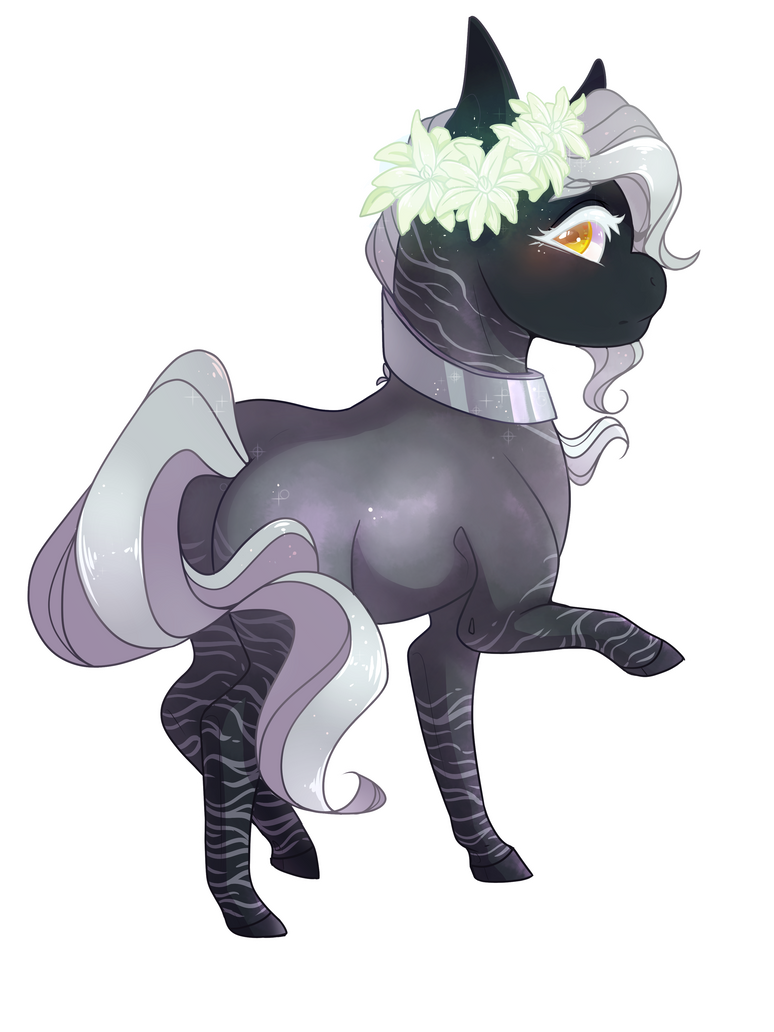
pulled flowers at my feet
lost in the wind
Her family, Moira says, would disagree; she’s suddenly hyperaware of the way that the girl’s eyes linger on the silver of her coat, on the pale striping on her neck, on the white of her lashes. “…I see,” is all that she can come up with to say, at first. She is aware, vaguely, of such prejudices in other lands; however, in Solterra, such things do not exist, at least upon the basis of appearance. (And, she thinks, family is everything. It defines your entire status in society – without family, you are as good as nothing.) She eyes her somewhat thoughtfully, though there is barely a stifled prick of interest in her gaze. “We don’t have the same sorts of…preferences among my people. All that mattered where I grew up was blood – and bloodlust.” Either could bring you favor and fortune in Solterra; a pretty face meant nothing, at least without the cleverness or strength or good breeding to back it up. (One could accommodate for the other, but she supposed that it was ideal – though rare – to have all three.) She wonders if the Solterra that she is struggling to craft is the same, with a hint of bitterness. Trying to change a society and actually changing a society were two painfully, painfully different things, as she was beginning to find out.
The silence that stretches out between her question and the other girl’s response is almost painfully long and awkward, but Seraphina gives no sign of noticing it. Perhaps she didn’t hear her, or perhaps she’s simply lost in her own thoughts. Either way, Seraphina doesn’t feel like breaking the silence until she does, so she waits.
When the red does respond, it is with a name that Seraphina has to roll around in her head for a moment (Tonnerre is not quite like most of the last names in Solterra.) and a comment about her own name that’s even more befuddling. Clearly, Seraphina is not particularly well-versed in lightheartedness, not in butterfly (or phoenix) girls with sweet, riddling words. “Moira Tonnerre. It is a pleasure – my name is Seraphina, though, if you are so inclined, you may call me whatever you wish.” It isn’t her real name, at any rate. That was stolen by Viceroy years ago. In spite of what Seraphina has come to mean, to the world around her more than her, she struggles to put any true significance on it. At her next words, she inclines her head hesitantly. She wonders somewhat abruptly, if Moira is Denoctian. It seems that the night goddess’s people would be the most eager to speak well of her creations, to find the beauty in them all. (If she is Denoctian, Seraphina doesn’t know what she’s doing here – she supposes that she might be a deserter, like Acton, but that doesn’t seem right. The anger doesn’t cover her like a sheet; she doesn’t sense discontent rippling beneath her skin. She isn’t like Acton, or the boy, Cynix. There is a sadness to her, but, somehow, Seraphina doesn’t think that it finds its roots in Novus.) She does not smile like the girl might have hoped; but Seraphina is not a creature that smiles. Not really. Instead, she watches her with that same, strange composure, even as she ventures to speak. “Magical… perhaps. I’ll admit, I am more at home in the sun.” Lately, even that does not feel quite like home, however. She has always thought of herself as a child of the sun god, but she has denounced her relation to him – she wonders, sometimes, if it was a rash choice, made in anger. Now there is no one left for her to turn to, and nowhere left for her to call home. She feels strangely disjointed, like she’s drifting in a foreign space.
She supposes that is worth asking, too; for all she knows, she could be speaking to another Solterran, though she doesn’t feel that the girl is well-suited to the harsh domain of Solis and the treachery of the Mors. “What court are you from, Moira?” Simple – and only slightly relevant. Seraphina cares little for the boundaries of courts and considerably more for the character of others; however, before she divulges much of anything about herself, she’s learned to act with the certain degree of caution that her rank requires.
----------------------------------------------------------
tags | @
notes | <3

I'M IN A ROOM MADE OUT OF MIRRORSand there's no way to escape the violence of a girl against herself.☼please tag Sera! contact is encouraged, short of violence

